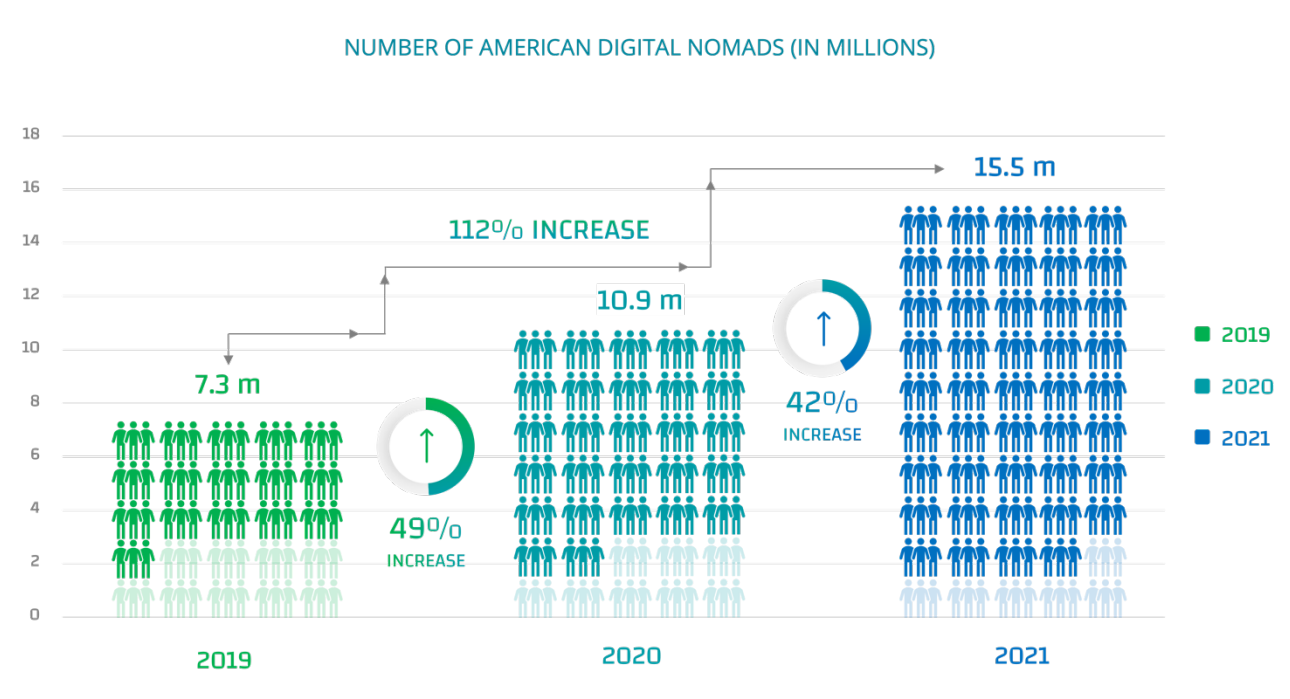
A recent survey reveals that since the summer of 2021, there has been a 21% average global increase in the verification of foreign documents, with the U.S. and UAE experiencing a notable 25% rise. The insurance sector is particularly impacted, dealing with a 27% increase in foreign ID verifications, closely followed by the financial and banking industries at 25%. This surge in foreign clients is primarily attributed to the expanding digital nomad movement (where employees embrace remote work from any corner of the world or while traveling), per AFP.

Rising identity fraud concerns
The complexity of verifying a diverse range of foreign IDs has led to increased identity fraud risks. According to the survey by Regula, 40% of business decision-makers cite fraud as a major challenge in verifying digital nomad identities. This concern is even more pronounced in the UAE and Mexico, where 51% and 49% of decision-makers, respectively, feel vulnerable to fraud. Alarmingly, 80% of survey participants directly link the digital nomad trend to a spike in document forgery, with the insurance industry witnessing a 22% growth in document fraud, and the financial sector nearly 19%.

Innovative solutions and biometric authentication
To counter these challenges, 57% of organizations are now implementing biometric authentication to enhance the security of digital onboarding processes. In response to document forgery, 53% of businesses prefer verifying only electronic documents, which are significantly more secure due to embedded RFID chips. This shift is more pronounced in the financial and insurance sectors, with 61% of decision-makers opting for e-doc verification.
Read also:Unraveling The Mystery Is Kirk Russell Still Alive
The need for robust verification technologies
While electronic documents offer enhanced security, organizations still face threats like data manipulation or interception during verification. Hence, a "zero-trust-to-mobile" approach and sophisticated NFC verification technology are essential to authenticate both the chip and its data. Regula’s Document Reader SDK is an example of a technology offering server-side verification to ensure chip authenticity and data integrity.
Henry Patishman, Executive Vice President at Regula, emphasizes the need for businesses to adopt new technologies for reliable verification, especially in remote processes. He notes that the overall digitalization and mass movement of people is creating new challenges for businesses, necessitating the adaptation of identity verification processes to evolving scenarios and requirements. As a response, leading vendors like Regula are introducing innovative solutions across various industries.
![71+ Digital Nomad Statistics & Trends [New 2024 Updates]](https://www.projectuntethered.com/wp-content/uploads/2023/01/number-of-digital-nomads-growth-trends-2023-update-1.png)


